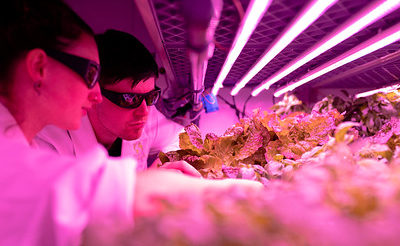Govt to cut funding red tape that stifles UK innovation

A government research body will trial simplified grant application processes for the scientific community, removing bureaucratic red tape that otherwise hinder “trailblazing research”, in order to accelerate UK innovation.
“Unnecessary” paperwork and funding applications that could restrict ground-breaking research for scientists, will be streamlined by UK Research and Innovation (UKRI) to make Great Britain a “science superpower”.
The pilot, which includes a combined £20m in two separate grants to boost research in mathematics, physics and “high risk, high reward” projects, is additional to the recently announced Global Talent visa – a fast-track scheme with no upper limit, designed to attract the world’s top scientific minds to this country and to ensure the UK retains a leading edge in technological developments.
By improving the means by which the scientific community currently applies for research funding, it is free to pursue more ambitious and meaningful initiatives, such as disease cures or improved transport networks.
World-leading scientists, researchers and academics will be consulted on how best to deploy the new programme, which is part of a wider campaign by the government to create an Advanced Research Projects Agency (ARPA).
UKRI’s new process includes a £10m ‘New Horizons’ grant for “highly transformational” research projects in mathematics and physical science, and a further £10m ‘Pushing the Frontiers’ fund to encourage environmental scientists to pursue adventurous boundary-pushing, high reward projects.
“This government is committed to increasing research funding to record levels. But we must revolutionise the way our research system works to make the UK the best place in the world for science and innovation,” said Science Minister Chris Skidmore.
“Last month, the PM announced a major review of research bureaucracy and methods. We are now getting on with the job of freeing up our scientists to do what they do best,” he added.
Paul Gemmill, chief operating officer of the Biotechnology and Biological Sciences Research Council, who is leading this work across UKRI, added: “We are seeking to ensure that we make the best possible investment decisions and free up those in whom we invest in to focus on their work of creating new knowledge and delivering social, cultural and economic benefits.
“We will look for evidence of potential improvements to our processes, then act on this evidence to deliver change,” he added.
